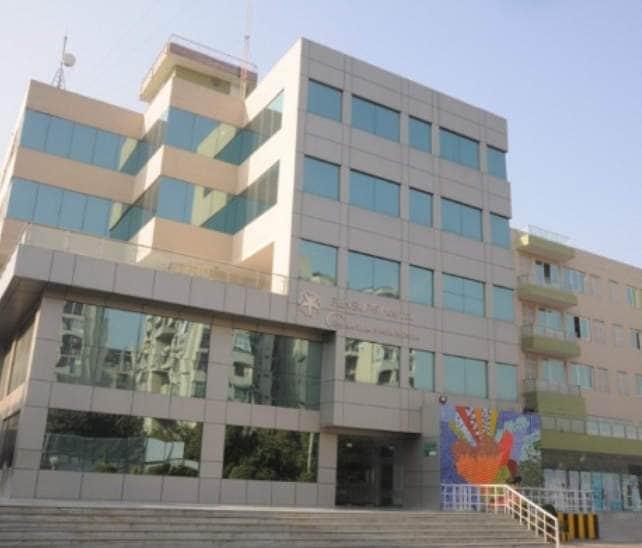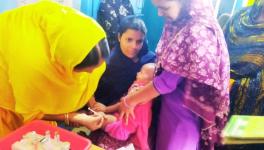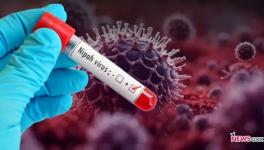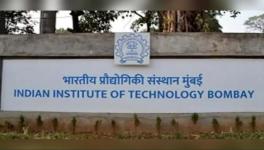Moolchand Hospital in Delhi Records Rise in Post-COVID Neurological Cases

Image Courtesy: Medical Tourism In India
New Delhi: A leading private health facility in Delhi on Saturday said it is reporting a rise in neurological issues among post-COVID patients, including emergency cases of brain haemorrhage.
Also, in the out-patient department (OPD), up to 60 % of patients are presenting increasing mental health issues like anxiety, depression, suicidal thoughts, feeling of loneliness, and majority of these are post-COVID cases, the Moolchand Hospital said in a statement.
Doctors at the private facility said the neurological issues among post-COVID patients have seen a "troubling rise" here.
The Moolchand Hospital has been "recording increasing cases of intracerebral (brain) haemorrhage, and 50% of the neuroscience department is filled with such cases," it said.
The doctors also said that people who have survived the pandemic and those who were infected with COVID-19 are increasingly coming to the hospital many weeks later with symptoms such as headache, giddiness, fatigue, cognitive difficulties, memory problems, anxiety, depression, stroke, pain and sleep disorders.
In the OPD, up to 60% of patients are coming with mental health issues like headache, anxiety, depression, suicidal thoughts, feeling of loneliness etc, they said.
"Majority of these cases are those who have had COVID-19 infection in the past, with a gap of two to three months," senior neurosurgeon at Moolchand Hospital, Dr Asha Bakshi, said.
"Such issues are severely affecting their personal as well as professional lives. Many complained that they find it extremely tough to focus during work. People are struggling with work-life adjustment issues as well," she said.
Bakshi said that the pandemic has not only caused acute inflammatory illness involving the lungs predominantly, but has also led to some long-term neurological problems.
She cited a large cohort study done by the Global Consortium Study of Neurologic Dysfunction in COVID-19 (GCS-NeuroCOVID) and the European Academy of Neurology Neuro-COVID Registry (ENERGY) of over 3,700 patients which indicated that neurological manifestations were found in approximately 80% patients hospitalised with COVID-19, the statement said.
"Thirty-seven per cent of patients reported symptoms, including headache while anosmia or ageusia was reported in 26% of them. The most common neurological syndromes reported were acute encephalopathy (49%), coma (17%), and stroke (6%). Presence of clinically captured neurologic signs or syndromes was associated with increased risk of in-hospital death," the neurosurgeon claimed.
She also said that more than 42% of people surveyed by the US Census Bureau in December reported symptoms of anxiety or depression.
"Data from other surveys suggest that the picture is similar worldwide. In India, a study from Assam (Hazarika and colleagues) found that 46% had anxiety, 22% had some form of depression and 5% had suicidal thoughts," Bakshi added.
She emphasised the need for addressing the incidence of neurological disorders and long-term mental health issues in the post-COVID population.
"This needs to be addressed seriously especially when such a large populace is affected as it has a direct implication on our social fabric and more importantly on work-life and subsequent economic health of the nation," Bakshi added.
Meanwhile, city-based Akash Healthcare on Saturday said its hospital has received 15-20 cases with neurological conditions after patients recovered from COVID-19, in the past two-four weeks.
"The most common condition we have seen are migrainous headaches and post-COVID encephalopathy apart from proximal myopathy. The other rarer conditions included Guillain-Barré syndrome. Typically, the headaches are migrainous in character, present in younger age group and do not respond that well to common medications used for common migraine," said Dr Madhukar Bhardwaj, neurologist at Aakash Healthcare Super Speciality Hospital.
Post-COVID encephalopathy presents with progressive decline in behaviour and alertness in the elderly.
"So far, we have not seen children coming up with such conditions. People are coming to us with these neurological conditions after one-two months of recovering from COVID," he said.
Get the latest reports & analysis with people's perspective on Protests, movements & deep analytical videos, discussions of the current affairs in your Telegram app. Subscribe to NewsClick's Telegram channel & get Real-Time updates on stories, as they get published on our website.
























